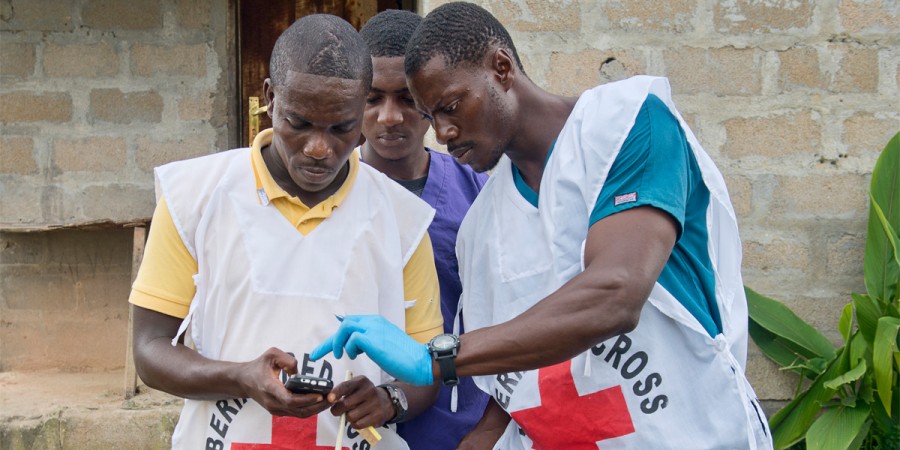With “Working differently to end need” established as one of the five core areas of the Agenda for Humanity, innovation will be high on the agenda at the World Humanitarian Summit. But it is not enough for humanitarians to innovate within their own systems. If we are serious about change that will bring lasting benefits for humanity, we must disrupt the status quo and focus our efforts – and our investment – on people.
Too much of the existing innovation work within the humanitarian sector is top-down and technology-heavy – so much so that it is arguably conflating technology with innovation. This approach can lead to simple local solutions being overlooked, even when they are in more demand and will be more sustainable.
Examples abound of small innovations that are having big impact in the lives of the communities where they have been invented. In Kampala, Uganda, the alarming number of deaths and injuries caused by road traffic accidents is being reduced through a simple incentive-based innovation.
SafeBoda, a community of professionally-trained motorcycle taxi drivers, have established a code of conduct. Taxi drivers that sign up to this code undergo road safety training and basic first aid with Uganda Red Cross Society. This training develops safer driving practices, and also increases the number of first responders in the event of accidents. Qualified motorcycle taxi drivers wear distinctive high-visibility vests allowing the travelling public to recognize their taxi service as a safe option.
The International Federation of Red Cross and Red Crescent Societies (IFRC) would like to see the innovation agenda being led and driven by local innovators, local humanitarians and local communities. There is currently too little investment in identifying what is already working, in what ways local people are already innovating, and in how their efforts can be supported. What is needed is a genuine shift from a top-down agency-led vision to a community-based model focused on strengths and capacity rather than deficiency and need.
With up to 17 million volunteers in 190 countries, the IFRC is the world’s largest humanitarian network. Each day, these volunteers are working to find new solutions to their specific humanitarian challenges, be it women’s groups in Sierra Leone exchanging ideas on how best to improve the health of their families and communities, or inmates in Ireland working as Red Cross volunteers to find new ways to address violence in their prisons. Each day, our volunteers are innovating to address the challenges facing their communities. They are local people, living in local communities, collaborating to find local solutions.
Our approach can be broken down into four simple stages.
One, we must learn. We cannot address the mounting humanitarian challenges unless each context and circumstance is understood thoroughly. The people who have this deep knowledge are local staff, volunteers and communities. We must identify local solutions and innovations and then learn how we can support them. Where no solutions are readily available, humanitarians can work alongside communities and involve partners were necessary.
Two, we must support – find ways to re-orient the balance, to ensure that local workers and volunteers trialling new approaches can find the support they need, whether that be financing, access to coaching and mentoring, or links to networks and new partners that can help them grow and learn.
Three, we must leverage – utilize the knowledge and reputation of the IFRC in support of local innovators. The role of our global institution must be to find ways to help bring local, national, regional and international expertise and resources to where they are needed most, and bring people together in innovation networks.
Four, we must share – encourage people to learn from each other, share their experiences and get ideas from others with similar challenges and similar resources at their disposal. The IFRC can facilitate a connected network across the world that promotes genuine peer learning to help people get the information they need when they need it.
We should not ignore technological innovation or the need to improve the humanitarian system at large, but there must be a balance. Local staff, volunteers and innovators must be involved in working groups and design teams from the outset, and humanitarian agencies must ground their innovation work firmly in the needs of communities. This will ensure that we are not pushing solutions in search of a problem, but instead working collaboratively and smartly to find solutions to address problems.


Comments